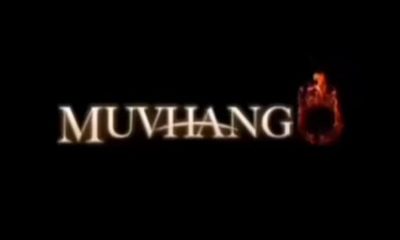News
GNU Under Review: 6 Key Fails in Its First Year, According to ActionSA

JOHANNESBURG — One year into the Government of National Unity (GNU)’s term, opposition party ActionSA has delivered a scathing performance review. Speaking at a press briefing on Friday, the party’s parliamentary leader, Atholl Trollip, unveiled the GNU Performance Tracker, a data-backed tool monitoring government effectiveness, and according to Trollip, the report card is an outright F.
Trollip claims the GNU has not only failed to deliver on its promises, but has also wasted hundreds of millions of rands on unnecessary travel and bloated cabinet expenses. In contrast, millions of South Africans remain in dire need of basic services and jobs.
So what exactly did ActionSA uncover? Here are six major points from their review:
1. R204 Million Spent on Ministerial Travel
The headline figure that has shocked many South Africans: R204 million spent on ministerial travel in just one year.
The party’s leader accused the GNU of disguising luxury trips as official duties, calling it “lavish spending under the guise of service.”
The figure was extracted from parliamentary questions submitted by ActionSA, but according to the party, some departments failed to disclose their travel costs, including the Presidency and the Ministry for Women, Youth, and People with Disabilities.
“This R204 million might just be the tip of the iceberg,” he warned, adding that the true total could be much higher.
2. Cabinet Size Increased — Along With the Bill
ActionSA says the GNU has grown the cabinet for political reasons, not public benefit, and taxpayers are footing the bill. According to Trollip, the number of ministers increased from 30 to 32. Deputy ministers rose from 36 to 42. The estimated cost of this expansion? An additional R250 million per year.
He said this size increase was unjustifiable: “Ministers are public servants, not royalty.”
3. Service Delivery Still in Crisis
Despite the ballooning cabinet size and spending, every day, South Africans are still struggling with poor service delivery. Trollip pointed to sanitation as a clear example. One in six households still rely on bucket toilets, pit latrines, or have no toilet access at all ,a figure that has barely changed under the GNU. This, he argued, is a “shameful reminder” that flashy leadership does not translate to better living conditions.
4. Unemployment Is Worse Than Ever
The GNU’s first year in power has done little to ease South Africa’s unemployment crisis.
According to ActionSA’s tracker, 8.23 million people are officially unemployed. An additional 3.5 million are discouraged from job-seeking. This puts the real number of jobless people over 12 million
Even more alarming, the expanded unemployment rate rose from 42.1% to 43.1% in just the first quarter of 2025. “These aren’t just numbers,” said Trollip. “They represent real people, real families — and real suffering.”
5. Basic Accountability Is Missing
Trollip also raised the issue of transparency, saying many departments failed to provide information or dodged accountability altogether.
Departments like Land Reform and Social Development reportedly ignored ActionSA’s information requests for over six months. Others offered vague or incomplete reports, leaving the public in the dark about how money is spent.
“If this is how the GNU behaves when questioned, what else are they hiding?” Trollip asked.
6. ActionSA Vows to Keep Tracking the GNU
He insisted the GNU Tracker is not about scoring political points, but offering constructive oversight. The tool evaluates the government’s performance across six key sectors, which are: – Ethical Leadership & Public Service, Economy, Infrastructure, Basic Services, Education, and Crime.
ActionSA says the data is drawn from credible sources such as Stats SA, official responses, and global benchmarks.
“We want a better South Africa,” Trollip said. “But that starts with transparency, performance, and accountability — not excuses and excess.”
As South Africa settles deeper into the realities of coalition governance, the public is watching closely. With unemployment rising, services failing, and spending under scrutiny, the question remains: Is the GNU serving the people — or itself?












